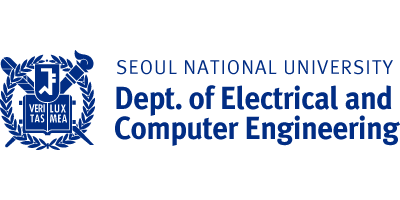Professor Kyoung-Mu Lee, an internationally prominent scholar in the field of artificial intelligence in computer vision, appointed as an honorary chair professor at SNU. (AI Times, 2022.09.02)

College of Engineering, Dept. of Electrical and Computer Engineering,
Professor Kyoung-Mu Lee
Se-Jung Oh, the President of Seoul National University, appointed 3 full-time professors as “SNU honorary chair professors of 2022” on the 1st of September to support the research activities of the faculty members that are reputed internationally for their exceptional academic achievements.
A total of 3 professors, Kyoung-Mu Lee, Professor at the College of Engineering, Dept. of Electrical and Computer Engineering, Kyung-Seob Jang, Professor at the College of Social Sciences, Dept. of Sociology, and Yu-Jae Lee, Professor at the College of Business, Dept. of Business, were selected as honorary chair professors. As the honorary chair professor policy in SNU, applicable faculty receive benefits such as academic research activity incentives, and a reduction in the faculty responsibility times. Including the three that were appointed this time, a total of 14 honorary chair professors, including visiting professors, are currently active.
SNU appoints an active faculty member as an honorary chair professor if he has been awarded the Nobel Prize or international equivalents, or has contributed exceptionally to the betterment of humanity, or has been awarded by international organizations and spent more than 10 years in their respective fields, or has a prominent reputation and great personality and virtues, or has other qualities that justify being appointed as an honorary chair professor. The appointment is processed by the honorary chair professor committee.
Kyoung-Mu Lee, a professor at the Dept. of Electrical and Computer Engineering, and the head professor at the Graduate School of Interdisciplinary Artificial Intelligence, is an internationally reputed scholar in the field of artificial intelligence and especially computer vision. He has made great achievements in the application of deep learning to video restoration and has over 28,000 total citations from Google Scholar.
In 2019, he was appointed as one of the general chairs in the organization of ICCV2019, where 7,500 people participated. The event, which was held in Seoul, was successful and contributed to the development of Korea’s artificial intelligence standards.
For achievements like the one above, Professor Lee was nominated as an IEEE Fellow, was appointed as a regular member by the Korean Academy of Science and Technology, and was appointed as a member by the National Academy of Engineering Korea. He was also awarded the SNU scholarly award, Science and Technology practitioner of the month award, and the Red Stripes Order of Service Merit.
Currently, Professor Lee is appointed as the editor of the IEEE (Institute of Electrical Engineers) TPMAI(Transactions on Pattern Analysis and Machine Intelligence) journal, which is the most impactful international journal in the field of artificial intelligence. He has been the editor since last January, and the term of office is 2 years.
He is the first Korean and the first Asian to be appointed as the editor during the 42-year-long history. His appointment can be seen as a glorious feat that could rewrite the history of Korea’s engineering sector.
Professor Kyung-Seob Jang internationally pioneered the field of social theory, comparative social systems, the study of citizenship, and political economy through his original theory and analysis of Korea and the state of East Asia.
His theory on compressed modernity and developmental citizenship were cited as special topics by international journals, and universities around the world selected the theories as the central theory for large research projects. The English publication on compressed modernity theory is scheduled to be translated into Chinese, French, and in Arabic.
Professor Yu-Jae Lee was the first Korean to obtain a Ph.D. in business from Stanford and receive a retirement guarantee from Michigan as a professor. By developing a new concept called customer value business, Professor Lee developed the Korean Standard Service Quality Index, Seoul Service Index, and the Public-Service Satisfaction Index.
He was the first scholar of business to be awarded the National Academy of Sciences Award and was nominated as one the top 10 scholars in the Asia Pacific region, the first honorary chair professor from the College of Business, and was also nominated as an excellent scholar by the National Research Foundation of Korea. He published over 200 papers and contributed to enhancing customer satisfaction and citizen happiness standards, with his papers being cited over 67,000 times.


